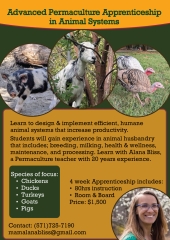




My online educational sites:
https://www.pinterest.ca/joelbc/homestead-methods-tools-equipment/
https://www.pinterest.ca/joelbc/mixed-shops/
 1
1




Joel Russ wrote:Can we again make useful devices and machines in our own neighborhoods?
My project thread
Agriculture collects solar energy two-dimensionally; but silviculture collects it three dimensionally.

 1
1




 1
1




 5
5




 1
1




Seed the Mind, Harvest Ideas.
http://farmwhisperer.com






 1
1




My online educational sites:
https://www.pinterest.ca/joelbc/homestead-methods-tools-equipment/
https://www.pinterest.ca/joelbc/mixed-shops/










My online educational sites:
https://www.pinterest.ca/joelbc/homestead-methods-tools-equipment/
https://www.pinterest.ca/joelbc/mixed-shops/






 1
1




My online educational sites:
https://www.pinterest.ca/joelbc/homestead-methods-tools-equipment/
https://www.pinterest.ca/joelbc/mixed-shops/














My online educational sites:
https://www.pinterest.ca/joelbc/homestead-methods-tools-equipment/
https://www.pinterest.ca/joelbc/mixed-shops/






 1
1




My online educational sites:
https://www.pinterest.ca/joelbc/homestead-methods-tools-equipment/
https://www.pinterest.ca/joelbc/mixed-shops/

|
There's no place like 127.0.0.1. But I'll always remember this tiny ad:
Learn Permaculture through a little hard work
https://wheaton-labs.com/bootcamp
|





